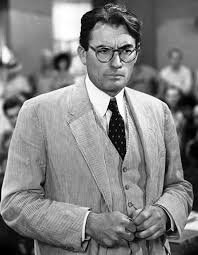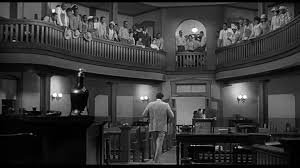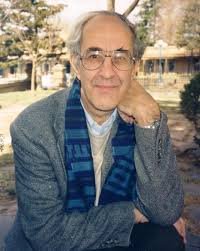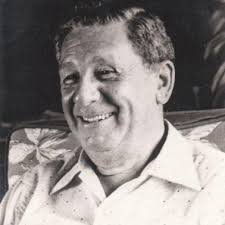11.2 - Walking in the Light from the Lonely Place
Click here to Subscribe and receive a new copy in your inbox.
In our last segment, we discussed the wisdom of saying no, a rather unconventional insight found at the end of John's Chapter 10 and the beginning of Chapter 11. Let's hope today's segment is just as unconventional—and practical.
Let's jump back into the story, taking it from the top.
Jesus, Lazarus, and the Light Within
11:1 Now a certain man was ill, Lazarus of Bethany, the village of Mary and her sister Martha. 2 Mary was the one who anointed the Lord with perfume and wiped his feet with her hair; her brother Lazarus was ill. 3 So the sisters sent a message to Jesus, “Lord, he whom you love is ill.” 4 But when Jesus heard it, he said, “This illness does not lead to death; rather, it is for God’s glory, so that the Son of God may be glorified through it.” 5 Accordingly, though Jesus loved Martha and her sister and Lazarus, 6 after having heard that Lazarus was ill, he stayed two days longer in the place where he was.7 Then after this he said to the disciples, “Let us go to Judea again.” 8 The disciples said to him, “Rabbi, the Jews were just now trying to stone you, and are you going there again?” 9 Jesus answered, “Are there not twelve hours of daylight? Those who walk during the day do not stumble because they see the light of this world. 10 But those who walk at night stumble because the light is not in them.” Walking by Spiritual Light
That makes sense: when walking during the day, we have light and can see where we’re going, so we don't stumble. At night, we might. But could there be more to what he said than this day/night comparison? It hardly seems important enough for two whole lines of scripture, especially when it had to be copied, copied, and re-copied over the last 2000 years. So, let’s think a little deeper. Is there more truth below the surface?
Walking during the day versus walking during the night. The person affected by the surface layer of Jesus' advice is the one who navigates life with his physical senses. He walks during the day to see his way using light from outside himself – the sun. He avoids nighttime travel or situations he can't see clearly. As Jesus points out, "The light is not in them.” Makes sense.
The Power of Action and Integrity
But is there another kind of person, one who has light within them? Yes, there is, and Jesus doesn't waste words teaching about it here. He exemplifies it. The one who carries the light inside, the one living life by his spiritual consciousness, walks through good and challenging situations during the day and night. Moreover, he doesn't spend time judging circumstances but is “biased toward action” with one thing in mind: follow the light wherever it goes.
“Let us go,” Jesus said, turning to give us a living example of following the spirit, seeking the truth, and living with what we call integrity. Two days prior, he had felt deep in his spirit, “Stay." He stayed - and told his dear friends Mary and Martha, “No.” On this day, he senses, "Go," so he says, "Let’s go.” He had honed this skill of hearing “the voice within” over his lifetime and was not concerned with the outcome. Experience has shown that “truth and freedom” were only found down the highway called “obedience.”
Lessons from Atticus Finch
During the 1930s and 40s, a young girl from South Alabama witnessed this integrity, this unconcerned obedience, in her father's life. She saw him take unwinnable cases for unpopular clients because it was the right thing to do. She grew up hearing echoes from the Scottsboro Boys trial, also unwinnable and argued by Samuel Leibowitz for the same reason - it was the right thing to do. Borrowing from these two attorneys, Leibowitz and her father, Amasa Coleman Lee, Harper Lee crafted an unforgettable literary and cinematic character who embodied integrity - Atticus Finch.
We watched as his integrity, that “light within,” compelled him to enter that tense courtroom and argue for Tom Robinson’s case in “To Kill a Mockingbird.”
I cried the first time I saw Atticus closing his briefcase, preparing to leave, while the audience on the balcony rose in his honor.
One of the most moving scenes in movie history is when Reverend Sykes tells Jean Louise or Scout, "Stand up; your father’s passin’.” Watching Finch’s steadfast pursuit of truth and his integrity has inspired millions.
Integrity needs no words, no fanfare. Its actions tell the story, and it attracts its own attention. “The life of Jesus,” says Thich Nhat Hanh, “is his most basic teaching - more important than faith in the resurrection or faith in eternity.”
To my grandchildren and their children: Strive to look beyond the words, through what Jesus says, to what he does and doesn't do and why. This is important because we are meant to live Jesus' life in our own lives. Only by doing so can we experience the truth and its freedom. Dallas Willard often said, "I want to live my life as Jesus would if he were me.” Too often, when it comes to Jesus' life, I find myself wanting to praise it instead of practice it.
But practice we must. How else will we learn to "walk during the day”- to follow our spiritual consciousness without deceit or manipulation and do the right thing without regard for the outcome?
But how does one start?
The Role of Withdrawal in a Distracted World
Reflecting on the first chapter of Mark’s gospel, Henri Nouwen says, “In the middle of sentences loaded with action – healing suffering people, casting out devils, responding to impatient disciples, traveling from town to town, and preaching from synagogue to synagogue – we find these quiet words: ‘In the morning, long before dawn, he got up and left the house, and went off to a lonely place, and prayed there.’’
Nouwen continues, “In the center of breathless activities, we hear restful breathing. Surrounded by hours of moving, we find a moment of quiet stillness. In the heart of much involvement, there are words of withdrawal. In the midst of action, there is contemplation. And after much togetherness, there is solitude. The more I read this nearly silent sentence locked in between the loud words of action, the more I have the sense that the secret life of Jesus’ ministry is hidden in that lonely place where he went to pray, early in the morning, long before dawn. In the lonely place, Jesus finds the courage to follow God's will and not his own; to speak God's words and not his own; to do God's work and not his own.”
Finding Your ‘Lonely Place’
In that “lonely place," Jesus finds the courage to say, "Let's go!” As he passes by, I imagine him slowing down, looking my way, and asking, "Where is your lonely place?” Then it strikes me: withdrawal must be a conscious act, especially these days when our lives resemble an arcade’s constant noise and flashing lights more than a space of solitude. Like Jesus, I must withdraw and retreat to my own "lonely place” to hone the skill of hearing the voice within and the courage to say, “Let’s go!”
Please don't overlook the difficulty and importance of this step.
Withdrawal is difficult because it's countercultural. It is difficult because it requires non-conformance. It is difficult because we live in a society awash with influencers and those eager to be influenced. We've replaced "rise and shine" with "rise and scroll” as we march in lockstep with a world we don't necessarily like. Try it – withdraw for a few minutes each day – and see how difficult it can be.
It is important because it is only here, behind the veil, that you silently become the only person on the planet and ignite your consciousness. Only in your consciousness, your personal holy of holies, can you create a space to meet the one who created you.
The American mystic Joel S. Goldsmith wrote, “God is to be found within us. The very moment that we can agree and believe that this is true, we have accomplished half of our life's journey toward the experience of heaven on earth.” Jesus agreed when he said, "The kingdom of heaven is within" and "The Father and I are one.
Now, God may very well exist in heaven, in the church, in the temple, and in the elements of the Eucharist, but I have come to believe that the God we can truly experience is the one within our consciousness. We know the air surrounds us, but the air that truly matters is the air in our lungs, our breath, which oxygenates our muscles and fuels our actions. Similarly, the God who truly matters is the one in our consciousness, our spirit, who influences our thoughts and guides our actions.
“There is no other way of witnessing to God but by aliveness. After all, the very word “spirit” means “breath,” and to breathe means to live. The Holy Spirit is the breath of divine life.”
From Insight to Action
If you've never experienced withdrawal to your “lonely place” and want to try it, let's begin with your mindset. Withdrawal is not something you “have to do” but rather something you “get to do.” It’s even less about what you do and more about what you do not do.
Think of it as if you’re attracting a butterfly to land on your shoulder; we must be very still, very quiet.
First, create a space and time for silence and settle into yourself. Be very still and very quiet. Observe your thoughts as they pass by. Don’t "think” them. (Remember, thought is a noun; think is a verb.*) Allow them to bounce in and out or float by. Watch for unusual thoughts and question their meaning, searching for insights or ideas you’ve never considered. Can this be turned into action? If so, try it at the right moment. Review the outcomes to see if this action benefits others (not just yourself) without manipulating them. It should lead you to silently feel better about yourself by strengthening one of your core values. Refine as necessary because, like life, it’s about trial and error.
Is this the only process? No, it's just one that I use. Will it work for you? Maybe. Do insights come up often? Not really. Mostly, there are random “to-do-like” thoughts. My biggest challenge is turning the rare insight into action. I often find myself looking for the next insight. I've learned that while insight is valuable, only action strengthens my core values and transforms my character—and the world around me.
Share Your Process
You may already have an effective process for engaging your consciousness and improving your character. If so, please share it with me in the comments below.
Not Interested?
If you aren't interested in the spiritual aspect of "the lonely place," consider the physical, mental, and emotional benefits. Researchers such as Dr. Thuy-vy Nguyen, Dr. Netta Weinstein, Dr. Imke Kirste, and Dr. Luciano Bernardi have shown the significant advantages of incorporating silence and solitude into daily life, making these practices essential for holistic well-being. Their research notes the following:
Stress Reduction: Taking time for silence and solitude encourages relaxation, essential for the body’s natural healing processes.
Enhanced Heart Health: Engaging in quiet moments is associated with reduced blood pressure and aids in preventing the buildup of arterial plaque.
Enhanced Creativity and Decision-Making: Moments of solitude provide the brain with opportunities to rest and rejuvenate, resulting in greater clarity and purposeful decision-making.
Enhanced Self-Awareness and Emotional Well-Being: Solitude provides an opportunity for self-reflection, fostering increased self-awareness and emotional regulation.
Autonomy and Stress Reduction: Research indicates that individuals who spend time alone experience greater satisfaction with their autonomy and lower levels of stress.
These benefits are cumulative, with regular solitude contributing to overall well-being.
Key Highlights:
Jesus exemplifies living with spiritual awareness by following the “light within" and making decisions guided by truth rather than by outcomes.
Harper Lee’s character, Atticus Finch, embodies the same unwavering commitment to integrity and truth. He takes morally right actions regardless of their popularity or consequences.
Jesus’ practice of retreating to a “lonely place” for prayer is vital for spiritual clarity and courage. Solitude allows individuals to connect with their spiritual consciousness and listen to the “voice within,” free from external distractions.
In a culture filled with distractions, withdrawal is a countercultural yet essential discipline. It creates a sacred space within one’s consciousness to connect with God and uncover personal truths.
Insights gained in moments of stillness should be transformed into actionable steps that align with core values and positively impact others. Action, rather than mere reflection, promotes character growth and the realization of spiritual truths in daily life.
(*) From Joseph Nguyen’s “Don’t Believe Everything You Think.”













